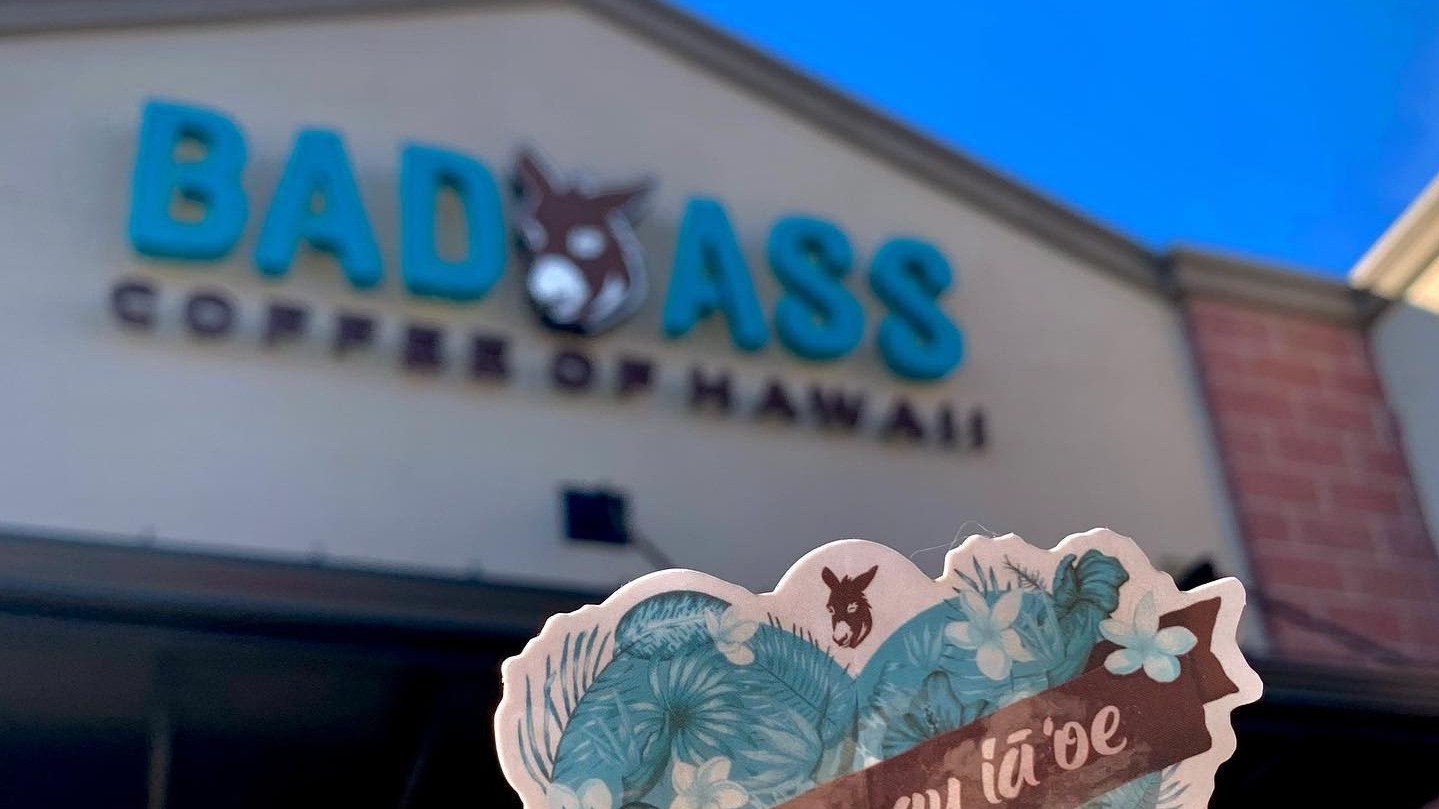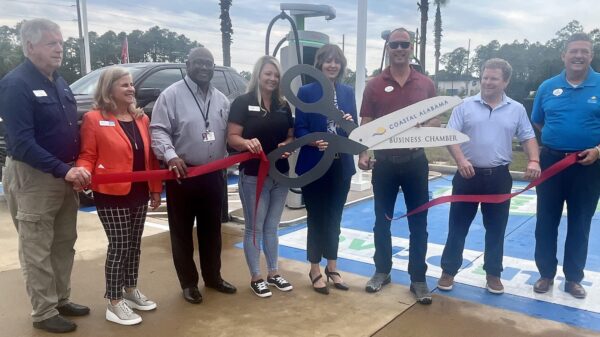Teaching adults not born in the same millennium as yourself, while also staring down an impending 20-year high school class reunion (Go Dragons! Alabama School of Math and Science, class of ’03) is enough to make anyone feel old, the sort of old where your bones turn just a little bit more into dust with each new Tik Tok trend.
But then a friendly bit of nostalgia comes along to make you feel young again as when the world was new – when fall leaves still fell upon profoundly mediocre football in Tuscaloosa. When we mock the persistently dumb foibles of city politicians.
Now, 20 years later, while Alabama football may be back on the map, we can still sadly laugh at city officials.
At an Aug. 16 Orange Beach city council meeting, Mayor Tony Kennon publicly – meaning in a place where other people could hear what he had to say – opened his mouth and lamented that Bad Ass Coffee Co., a Hawaii-based chain that playfully (intentionally?) uses the iconography of a hard-working, bean-toting donkey in its pseudo swear branding, was opening a location in his city.
“If it’s not a name or a word that I don’t want to come out of my 12-year-old’s mouth,” Kennon said, according to an AL.com story, “then it is not appropriate to be on a sign on one of our streets.”
Kennon even went as far as to suggest that residents and other assorted beach flotsam not visit the coffee shop because of its name.
“I just hope our community says that is not who we are. We understand the threat of what censorship can bring on,” Kennon said. “But at the same time, we have a right to not patronize the store if we find it offensive.”
The statements, ever so dumb as they were, took me back to my freshman year at the Capstone, when Tuscaloosa leaders were fresh off the same stupid argument over the same burro-based franchise.
“We presently don’t have a mechanism to do anything about it, and it disturbs me that any cuss words can be used without any legitimacy and licensed by the city,” said Tuscaloosa City Councilman Joe Powell, who called the franchise’s name “shocking” at a February 2003 meeting.
Bad Ass came and went from Tuscaloosa – with the location first switching its corporate affiliation to “Wickles Wicked Bean Café” (whatever that is), then rebranding as the home-brewed “Strip Teas and Coffee” before finally going out of business altogether – but the fact that Tuscaloosa city leaders, along with their Orange Beach contemporaries, wanted to fight about something as silly as a meekly profane business name is still ridiculous. (In fairness, the stupid bug may also have bitten officials in Hendersonville, Tenn. who denied a rezoning request in May that would have allowed for a franchise in that city. “Bad Ass Coffee – it just doesn’t to me represent the type of community we represent,” one resident said.)
Thankfully, both Alabama cities left their struggles against pro-donkey coffee at the “empty posturing” stage, because while the First Amendment and Supreme Court caselaw allow for tighter controls on commercial speech, those powers do not extend to governmental vetoes on non-obscene brand names and logos.
The Supreme Court’s test on the constitutionality of governmental restrictions on commercial speech comes from Central Hudson Gas and Electric v. Public Service Commission, a 1980 case that saw a New York utility company successfully challenge the legality of a blanket ban on advertising. In that case, the Court established a four-part test to examine limitations on speech that might serve as communication between a corporation and a possible consumer. First, the speech must be in regard to a lawful good or service and not misleading; i.e. the government’s ability to prevent illegal goods or services from being proffered is unquestioned, as is the ability to limit false and deceptive advertising.
Second, the government must have a “substantial” interest in whatever ill the regulation is seeking to address. A substantial interest is by definition not a “compelling” one, which is the language of a test more hostile to government regulations seeking to limit artistic or political speech that requires some essential justification like health and safety. Substantial, by contrast, could simply mean the aesthetics of a city skyline, which is the reasoning behind Tuscaloosa’s city ordinance limiting the height of signs along interstates to 60 feet.
(Fun fact: If you as a business, don’t like the fact you have to abide by this ordinance in T-town, you can always just ask that the land on which the sign will be built stay in the county when you get annexed by the city. That approach actually worked for a recently-built QT gas station on Interstate 59/20.)
The final two parts of the Central Hudson test ask whether the regulation in question directly advances the government’s asserted interest and whether the limitation on speech is no more extensive than necessary to achieve that goal – basically whether the regulation is effective in accomplishing the government’s mission while also leaving other ample opportunities for speech.
If Orange Beach or Tuscaloosa had forced the issue – had they sought to limit Bad Ass Coffee’s signage or branding – any such attempt would have been analyzed under Central Hudson and likely would have gone against the city if one prominent case about a profane beer label is any guide. In Bad Frog Brewery v. New York State Liquor Authority, the Second Circuit found that while preventing children from seeing bawdy language or images – such as Bad Frog’s middle-finger loving mascot – may be a substantial governmental interest, any such attempt to use commercial speech regulation to limit its appearance in the public square is dead on arrival. As the court concluded, “In view of the wide currency of vulgar displays throughout contemporary society…barring such displays from labels for alcoholic beverages cannot realistically be expected to reduce children’s exposure to such displays to any significant degree.”
In essence, the culture war for the heart of public discourse is over. As a contemporary, pluralistic society, we are crass and profane, and no amount of handwringing — either legitimate or put on — will reset us back to some imaginary time when society was exclusively pure and polite. And furthermore, it’s simply not the government’s place to dictate cultural morays and niceties.
After Orange Beach’s Mayor Kennon was held accountable/mocked for his comments, he clarified that the city wasn’t planning any action to prevent Bad Ass from opening. “We have no right to stop them,” he said. “There is no lawsuit being considered. It was simply opinions expressed by some of us who don’t like vulgarities in front of children.”
Of course, I wonder whether Kennon is fit to be the mayor of the closest place that Alabama has to a haven for hedonism and why he even wanted the gig originally if he feels the need to publicly disclaim being a “prude.”
But I know that he and other Alabama politicians will continue tilting at silly business names and engaging in other rabble-pleasing time wasters – because if 20 years of watching this state has taught me anything, it’s that nothing – save Nick Saban’s resurrection of Alabama football – changes here.



















































